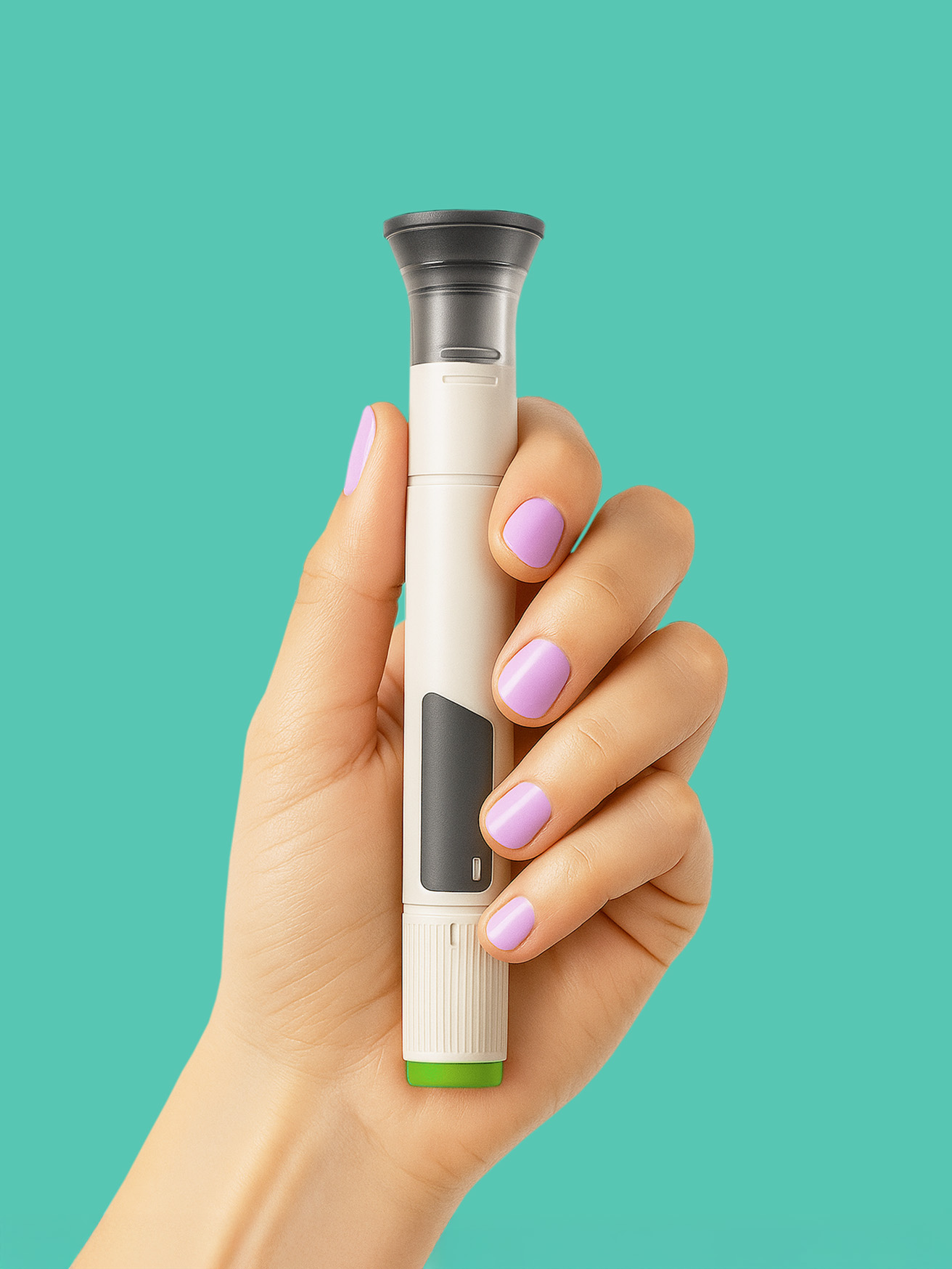Back to blog
Melatonin vs. Magnesium: What Really Works for Women’s Sleep?
Date:
Oct 17, 2025
Oct 22, 2025
Time:
3-5 min

If you’ve ever searched the pharmacy shelves at 10 p.m. desperate for a good night’s sleep, you’ve probably noticed two supplements front and center: melatonin and magnesium.
Both are marketed as natural sleep supports. But what’s the difference? Do they actually work for insomnia? And which one is right for you?
Let’s break down the science, and help you make sense of melatonin vs. magnesium for better sleep.
What is Melatonin?
Melatonin is a hormone your body naturally produces in response to darkness. It helps regulate your circadian rhythm (your internal clock that tells you when to sleep and wake).
When it can help
- Jet lag or shift work: It’s most effective for resetting your body clock.
- Short-term insomnia: Some women find it helps them fall asleep a little faster.

What to know
- Melatonin is not a sleeping pill. It just helps signal when it’s time to wind down
- In Canada, melatonin is sold as an over-the-counter supplement, but dosing can be confusing. More isn’t better as too much can backfire.
- Side effects can include grogginess, vivid dreams, or daytime sleepiness.
What is Magnesium?
Magnesium is a mineral that plays a role in over 300 processes in your body, including muscle relaxation, stress regulation, and nervous system balance.
When it can help
- Stress-related sleeplessness: Magnesium calms the nervous system, making it easier to relax.
- Hormonal shifts: Low magnesium is linked with PMS symptoms and perimenopausal sleep disturbances.
- Muscle tension or restless legs: It supports muscle relaxation, which can reduce nighttime discomfort.

What to know
- There are different types of magnesium supplements (e.g., citrate, glycinate, oxide) — some are better absorbed than others.
- It’s generally safe, but high doses can cause digestive upset.
- Unlike melatonin, magnesium doesn’t “knock you out.” Instead, it gently supports your body’s ability to settle into sleep.
Melatonin vs. Magnesium:
How they compare
Melatonin
- What is it: Hormone that regulates sleep-wake cycles.
- Best for: Jet lag, shift work, short-term insomnia.
- How it works: Signals your body it’s time to sleep.
- When to use: Occasionally, for circadian rhythm support.
- Drawbacks: Doesn’t help everyone, can cause grogginess.
Magnesium
- What is it: Mineral that supports relaxation + nervous system.
- Best for: Stress, anxiety, hormonal sleep disruptions.
- How it works: Helps relax muscles, calm nerves, reduce stress.
- When to use: Daily, for ongoing sleep + wellness support.
- Drawbacks: Must choose right type, may cause mild stomach upset.
The takeaway
Melatonin can be helpful for specific sleep timing issues, while magnesium is more about creating the right conditions for restful sleep. For many women, magnesium may be a gentler, longer-term support, but it’s not a cure-all.
When supplements aren't enough
It’s important to remember that both melatonin and magnesium are supports, not solutions. If insomnia is frequent, lasting, or affecting your quality of life, supplements alone usually aren’t enough.
Signs it's time to get help:
- Trouble sleeping more than 3 nights a week for over 3 months
- Daytime fatigue that affects work, family, or mood
- Anxiety about sleep itself
- Reliance on supplements, alcohol, or sleep aids without real improvement
That’s when speaking to a healthcare provider is the best next step.
{{slider-second}}
The bottom line
Both melatonin and magnesium can play a role in women’s sleep health, but they do different things.
- Melatonin works best for resetting your body clock.
- Magnesium supports relaxation and stress resilience.
- Neither replaces the need to address root causes like stress, hormones, or health conditions.
You don’t have to figure it all out alone.
At Wylo, we combine science-backed treatments, expert consultations, and ongoing support to help women break free from sleepless nights.
Ready to take the first step toward better sleep? Start your journey today by joining Wylo Health.

This article is for informational purposes only and does not constitute medical advice. The information contained herein is not a substitute for and should never be relied upon for professional medical advice. Always talk to your doctor about the risks and benefits of any treatment.
Heading 1
Heading 2
Heading 3
Heading 4
Heading 5
Heading 6
Lorem ipsum dolor sit amet, consectetur adipiscing elit, sed do eiusmod tempor incididunt ut labore et dolore magna aliqua. Ut enim ad minim veniam, quis nostrud exercitation ullamco laboris nisi ut aliquip ex ea commodo consequat. Duis aute irure dolor in reprehenderit in voluptate velit esse cillum dolore eu fugiat nulla pariatur.
Block quote
Ordered list
- Item 1
- Item 2
- Item 3
Unordered list
- Item A
- Item B
- Item C
Bold text
Emphasis
Superscript
Subscript
More articles for curious minds
Get in touch today!
Don't be shy, you can ask us anything! Whether you’re curious about our services, need guidance, or just want to say hello—don’t hesitate to reach out!











